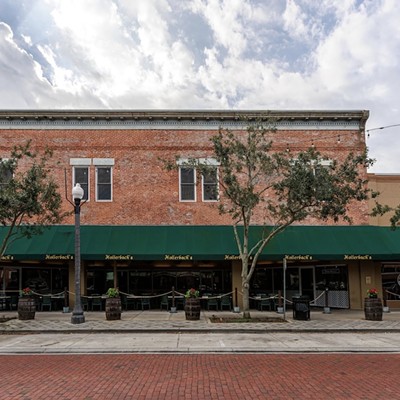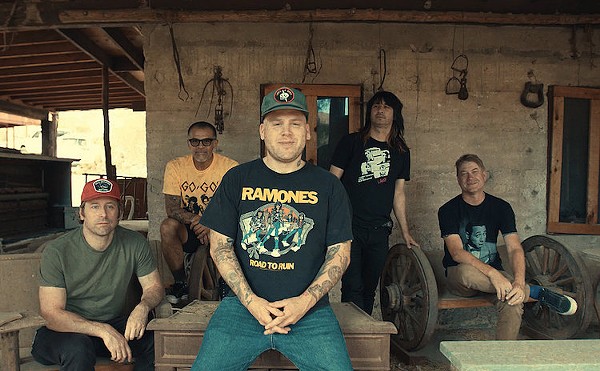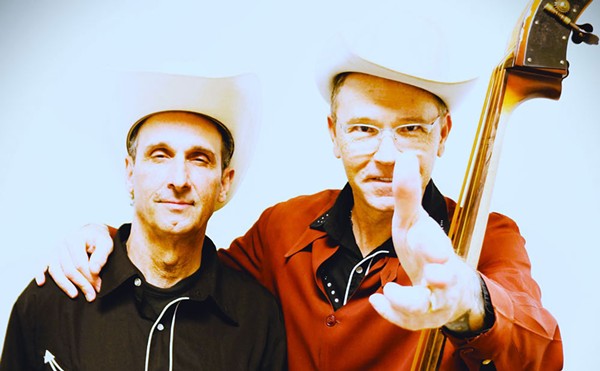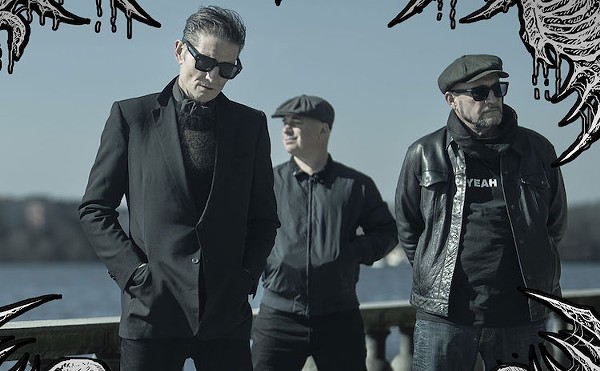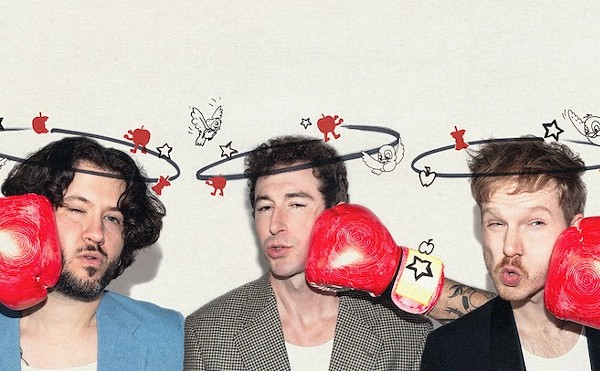Joe Pernice's lyrical melancholy has its antecedent in his New England roots. Speaking from a hotel the day after a show at Martha's Vineyard, I greet him with the clarion call of all miserably hopeless dreamers: "Did you catch the Red Sox game last night?"
"No, don't do that to me, man," he responds with fervor, evidence that he's aware of the team's late-inning failure the night before.
Not that the Sox are the source of all or any of Pernice's song-born woe, but one can't escape the game's emotional resonance, considering the way in which he sings of those staring dispassionately into the abyss; the ones who dare not hope for salvation and just beg for a little peace. From Pernice's "The World Won't End" album, there's the character from "Shaken Baby" who asks, "Would you stay until I'm sleeping? I'll wake up tomorrow, still I won't feel alive"' and the temp worker from "Working Girls (Sunlight Shines)" who is "contemplating suicide or a graduate degree."
You can hear the same sadness/resignation throughout Pernice's new album, "Mine, Yours & Ours," especially in songs such as "Baby in Tow." That track compares "holding on to something when you should just let go" to King Solomon's final edict, ultimately suggesting that love is best expressed by giving it up. In another album entry, "Waiting for the Universe," Pernice wonders if we "were the last alive, would we sit there like the amateurs and watch our days go by, waiting for the universe to die."
Pernice traces his blandly despairing outlook to his youth.
"I write a lot of songs that are, I think, about my upbringing. For sure, it was a good upbringing, but where I lived -- in the middle of suburbia -- was the grayest," he says. "It was really bankrupt of any culture outside of a carpeting store. I always picture it as March, there's sand on the street, rotten snow and just mud. The people are pretty nice, and that's how they like it. But, really, as soon as you're 12, you're planning your escape. I got out when I was 18, and I never went back. No hard feelings, but it's grim."
A former MFA candidate who studied writing at the University of Massachu-setts Amherst -- where he shared classes with fellow musician David Berman (Silver Jews) -- Pernice tends to eschew narrative. His songs are driven more by imagery or evocative confessions, though they definitely tell stories. In the song "Flaming Wreck (off of "The World Won't End"), the protagonist finds an eerie peace he's never known as he awaits an imminent plane crash, saying, "Did you know I would die for something?"
Unlike the written word alone, Pernice says, "[Music] certainly gives you a lot of freedom to be cryptic and to make your narratives looser, dappling the melody with images that hopefully evoke something. I don't really write many songs that are stores from top to bottom in the way traditional folk singers write songs. I find the music kind of liberating in that way. Also the music often inspires the lyrics, so it's interconnected."
After leaving Sub Pop alt.country act Scud Mountain Boys in 1997, Pernice took his music in a new direction, moving away from seat-of-the-pants inspirations toward sophisticated pop arrangements that hearkened back to Bacharach in their lush, winning sound. His second Pernice Brothers album, "The World Won't End," marked the apogee of this approach and proved more successful than any of his Sub Pop albums. (It even hit the lower regions of the Billboard charts, due to his hardcore fans.) His latest album moves away from that polished sound toward something more open and rocking.
"We wanted to have something with more impact than the last few records," Pernice says. "Strings -- sometimes, even though they sound big, actually serve to make a song sound smaller because you have to mix the drums lower. We made two records like that already, and we wanted to do something a little different."
Pernice admits that his ringing guitar and stereo choruses echo his love of '80s British pop and American New Wave. You might even find a rhythm guitar bit that bears a resemblance to the Rolling Stones' "Miss You." But his downbeat lyrical bent remains intact.
"I'd rather hear something that was emotionally significant to the voice singing, rather than it seem ironic or clever," he says.



